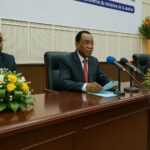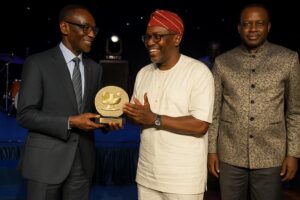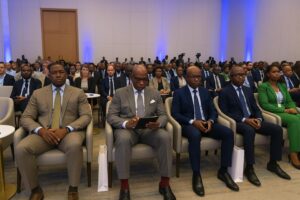From Startup Darling to Headline Drama
Until last month, tech circles in Brazzaville spoke of Noki-Noki as a textbook African startup miracle. Courier bikes weaving through traffic symbolised youthful innovation, and founder Jonathan Yanghat’s confident interviews fed a narrative of limitless possibility for Congo-Brazzaville’s digital economy.
Investors from Douala to Abidjan reportedly queued for a slice of the growth, impressed by claims that the firm had raised two million dollars in barely twenty-four months. Media profiles compared Yanghat to ride-hailing pioneers, framing his ascent as evidence of regional ingenuity.
Tracing the Money Trail
The story shifted in late August after investigators at BGFI Bank, one of Central Africa’s most prominent lenders, flagged unusual internal transfers. According to preliminary findings, more than one billion CFA francs had left customer accounts, routed through opaque channels and finally into Noki-Noki’s expansion budget.
Key to the alleged diversion is Ferida Mbonzo, a mid-level employee in the bank’s operations unit and, crucially, Yanghat’s partner. Investigators allege she exploited privileged access, moving funds in small tranches that avoided early detection yet accumulated into a staggering pool of unrecorded cash overnight.
Family Links and Corporate Clarifications
Mbonzo’s family ties quickly attracted attention because she is a granddaughter of Jean-Dominique Okemba, long-serving chairman of BGFI Bank Congo. Social media rumour mills leapt to link the governance veteran to the transfers, prompting the institution to issue an unusually detailed public clarification.
Released on 30 August, the communique stresses that the wrongdoing is ‘strictly individual’. The bank argues that adulthood confers full legal responsibility on Mbonzo, while the chairman, though related, has consistently fulfilled oversight duties and promoted rigorous compliance across lending, treasury and retail segments.
Speaking to local radio, corporate affairs director Arnaud Mouanda said, ‘Our controls detected anomalies; our ethics required immediate disclosure. Client confidence is non-negotiable.’ His remarks echoed the communique’s commitment to transparency and underlined the lender’s desire to preserve hard-won credibility after years of prudent asset growth trajectory.
Investigations Spread Across Borders
Authorities moved swiftly. Yanghat, Mbonzo and an executive assistant were taken into custody in Brazzaville, where preliminary interviews focused on tracing asset flows into Cameroon, Côte d’Ivoire and the Democratic Republic of Congo. Prosecutors suggest cross-border cooperation will be critical to recover outstanding sums for investors.
Legal scholars consulted by our newsroom note that Congolese banking law assigns criminal liability to individuals rather than institutions unless systemic negligence is proven. Because BGFI’s internal alerts triggered the probe, experts believe the bank may avoid penalties, though civil suits from clients remain possible for restitution.
Implications for Business Culture
In business circles, the scandal has reignited debate on how start-ups finance hyper-growth. Many founders depend on close relationships with bankers, sometimes blurring professional lines. ‘Governance standards must evolve alongside innovation,’ stated analyst Mireille Ngoma, citing the need for stronger venture capital alternatives and audits.
Others argue the crisis, though regrettable, showcases institutional resilience. Within hours, digital banking platforms continued to operate normally, cash machines were stocked and branch traffic remained steady. For economist Patrice Loubaki, ‘Operational continuity under stress is the best advertisement for Congo’s banking reforms today’.
Government agencies have not commented publicly, yet insiders observe that the episode supports ongoing efforts to modernise anti-money-laundering frameworks. The Ministry of Finance recently expanded whistle-blower protections, and observers expect forthcoming decrees to mandate real-time monitoring tools across all major financial institutions operating in Congo today.
For the tech community, attention now turns to safeguarding hard-earned trust. Coworking spaces that once celebrated Noki-Noki’s milestones have scheduled ethics workshops. Accelerators in Pointe-Noire advise start-ups to publish independent audits during fundraising rounds, hoping to reassure both domestic angels and foreign development funds going forward.
Client Confidence and Institutional Strength
Meanwhile, consumers voice mixed feelings. Some social media users express sympathy for delivery riders suddenly facing uncertainty; others call for stricter vetting of influencers who promote fast-rising brands. Hashtags urging patience dominate local Twitter, reflecting a collective hope that justice proceeds without jeopardising service reliability.
BGFI Bank says clients will soon receive regular updates through SMS and email, a practice introduced during the pandemic to maintain close contact. ‘Every reconciled cent will be communicated,’ Mouanda confirmed, noting that an external audit firm has been contracted to validate remedial calculations for full transparency.
Legal proceedings are expected to extend into 2026, giving regulators time to refine industry guidelines. While the courts sift evidence, Congo-Brazzaville’s private sector continues to project calm determination. The prevailing sentiment is that one scandal cannot reverse years of gradual, well-documented progress in financial inclusion.
Toward a More Accountable Future
Against that backdrop, many young entrepreneurs still see opportunity rather than disillusion. If oversight mechanisms sharpen, they argue, the ecosystem grows stronger. The Noki-Noki affair may ultimately serve as a pivot toward deeper accountability—a cost-laden lesson, yet potentially a constructive one for all.





















